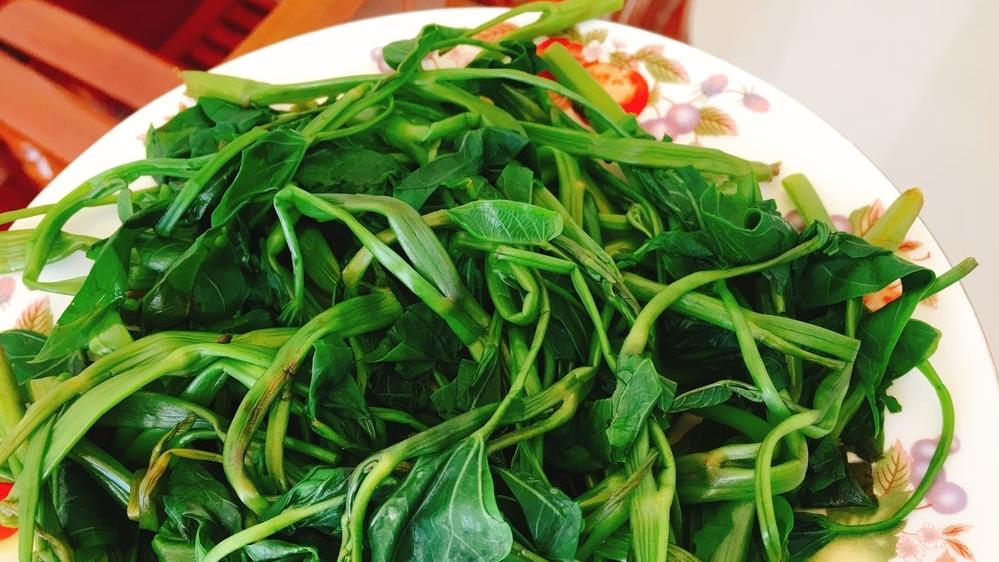Why It's Illegal To Grow Water Spinach In The South
Why a vegetable common to Asian households became outlawed, and how it's making a comeback.
Upon first glance, the bushy bundle that is water spinach lies quietly and neatly tucked in the produce aisle at my local Asian supermarket. This vegetable, known as rau muong in Vietnamese, is great in a stir fry with some shallots, eaten with rice and soy sauce or used in a soup. Its tastiness and affordability (a bundle usually costs around $1.50 and lasts through several meals) has made it quite common in many Asian households in America, including mine. Yet while water spinach is plentiful here on the West Coast, the South is a different story.
There, the plant is regulated under the federal government's Plant Protection Act, which makes it illegal to transport it across state lines without a special permit. This is because water spinach is considered a "plant pest." In Georgia particularly, stories have percolated about people growing and buying water spinach illegally in parking lots out of the trunks of cars.
Why water spinach became illegal
Water spinach is native to China but has been cultivated in India, Malaysia, Africa, Brazil, the Caribbean, and Central America. While unobtrusive to the climates of the West Coast, it's still considered a weed. In humid, subtropical climates such as Georgia and Florida, it can be a dangerous specimen, especially in the wet areas of the Everglades.
It doesn't take much to grow water spinach—just water and wet soil. The tender shoots can grow four inches per day, up to 70 feet long. Multiply this by a bundle, and you have a wild, uncontrollable vegetable that can obstruct water flow, wreaking havoc under waterways, drains, and flood control canals. It forms canopies over small ponds and creates a breeding ground for mosquitoes. Worst of all, it can infest lakes, ponds, and other natural wonders; the result is dangerous for native plants.
Due to its aggressive growth and destructive potential, Southern states such as Florida, Texas, and Georgia have strict rules about managing the vegetable. In Florida, for example, it must be grown in a greenhouse, harvested and packaged on site before being transported. According to the state's Fish & Wildlife Conservation Commission, you cannot grow water spinach in ponds, lakes, rivers, or canals.
The future of water spinach
For the past decade, as the Asian population grew in Atlanta and other parts of the South, so did water spinach's popularity. As a result, efforts have been made to legalize the versatile plant once more. Luckily, things are slowly changing for this "herbaceous vine." In March, Georgia's Department of Agriculture issued a press release allowing grocery stores and restaurants to sell water spinach.
But while the import and sale is now allowed, you still can't grow the vegetable in the state of Georgia.
"GDA personnel are working on regulations that will be announced later this year that will allow water spinach cultivation under a GDA permit," the press release noted. Meanwhile, other states with Asian populations such as California, Florida, Hawaii, and Texas already allow the growth and sale with a special permit. Whether you grow some yourself, purchase it at the supermarket, or head out on a road trip just to get your hands on it, water spinach is worth the trouble.
